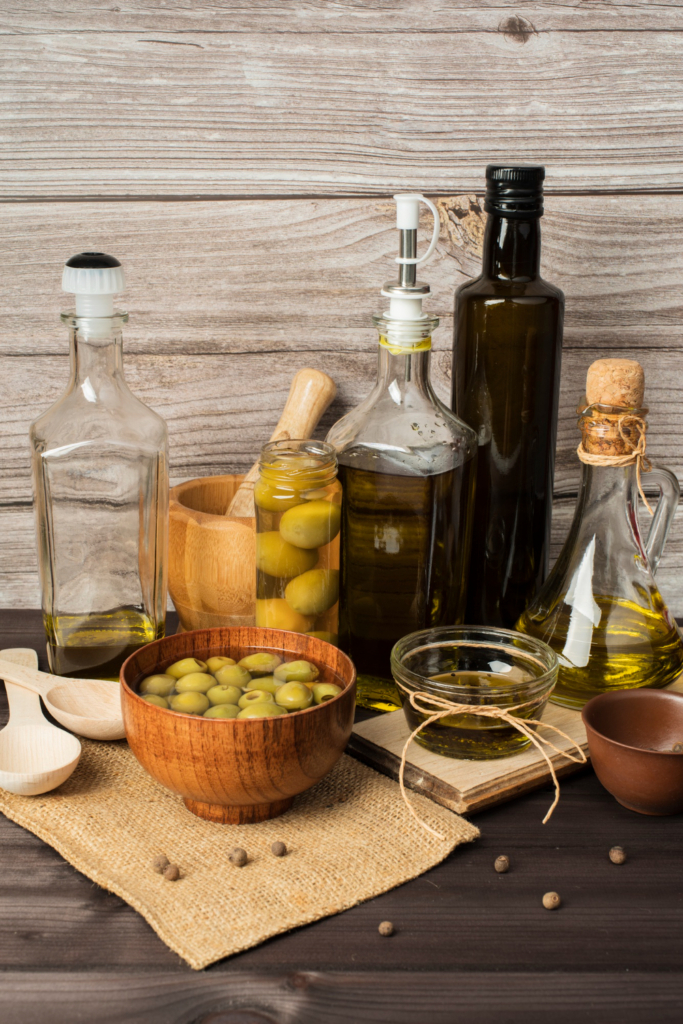
When it comes to cooking, using traditional oils has been the norm for many years. However, exploring alternatives to these oils can introduce exciting flavors and healthier options into your meals. One such alternative that offers convenience and versatility is spray butter.
In this article, we will delve into the world of delicious alternatives to traditional cooking oils, including the benefits they offer and how they can contribute to enhancing your culinary experience.
Table of Contents
Benefits of Exploring Alternatives
Traditional cooking oils often come with drawbacks, such as high saturated fats or limited flavor profiles. By exploring alternatives, you can find options that offer numerous benefits. These alternatives provide healthier choices for your cooking endeavors and allow you to experiment with different ingredients to enhance flavors and improve the overall quality of your meals.
Healthy Alternatives
One popular alternative to traditional cooking oils is olive oil. It is known for its heart-healthy monounsaturated fats and adds a distinct Mediterranean flavor to dishes. Olive oil comes in various types, including extra virgin, virgin, and light, each offering different levels of flavor intensity and smoke points. Extra virgin olive oil is ideal for drizzling over salads or using as a finishing oil, while light olive oil works well for high-heat cooking methods like sautéing and frying. Olive oil can be beneficial for your health as it is filled with polyphenol, a type of plant phytochemical known for its support of weight loss and anti-inflammatory effects. These days, it is even possible to buy olive oil which is vacuum-extracted to make the concentration of polyphenols even higher. If this is something you would be interested in, you can read more about the benefits of polyphenol-rich olive oil at Gundry MD Olive Oil reviews.
Avocado oil is another excellent alternative that has gained popularity in recent years. It is rich in beneficial fatty acids, particularly monounsaturated fats, which are known to support heart health. Avocado oil also has a high smoke point, making it suitable for various cooking methods, including grilling, roasting, and stir-frying. With its mild and buttery flavor, avocado oil can add a delicious touch to both savory and sweet dishes.
Coconut oil is a versatile alternative that offers a unique flavor profile. It is solid at room temperature but melts quickly when heated. Coconut oil adds a tropical essence to dishes and works well in baking, stir-frying, and even as a spread. While it is high in saturated fats, it contains a unique type of saturated fat called medium-chain triglycerides (MCTs), which are metabolized differently in the body. However, it is still recommended to use coconut oil in moderation due to its high calorie content.
Flavorful Alternatives
To add depth and flavor to your dishes, consider incorporating infused oils or herb-infused spray butter. Infused oils, such as garlic or chili-infused olive oil, provide a burst of aromatic flavors that elevate your cooking. These oils can be made by infusing them with various ingredients, allowing you to customize the flavors to your liking. Similarly, herb-infused spray butter can lend a delightful taste to your meals. The combination of herbs and butter creates a flavorful coating or finishing touch for meats, vegetables, and even bread.
Creative Uses of Alternatives
The beauty of exploring alternative cooking oils is their ability to inspire creativity in the kitchen. Olive oil, for instance, can be used as a base for homemade salad dressings, drizzled over roasted vegetables for a Mediterranean touch, or used as a dipping oil for bread. Avocado oil works well in stir-fries, as a substitute for mayonnaise in creamy dips, or as a nutritious addition to smoothies.
As for coconut oil, it can be used in baking to create moist and flavorful desserts, as well as in curries and Asian-inspired dishes for a hint of tropical goodness. With spray butter, you can use it to add a flavorful finishing touch to grilled seafood, to create a crispy golden-brown crust on your favorite baked goods, or simply as a convenient option for coating pans or griddles.
Practical Tips for Incorporation
Incorporating alternative cooking oils into your daily routine is simple. Store them properly in cool, dark places to maintain their quality. When cooking, use them in place of traditional oils, following the same measurements and cooking times.
For improving your meals, consider using alternative cooking oils when sautéing vegetables or marinating proteins to infuse them with unique flavors. Experiment with different combinations of oils and spices to discover your favorite flavor profiles.
Wrap Up
Embracing delicious alternatives to traditional cooking oils opens up a world of exciting culinary possibilities. From the heart-healthy benefits of olive oil to the versatility of spray butter, and the rich flavors of avocado oil and coconut oil, these alternatives can contribute to improving your meals by enhancing flavors, offering healthier options, and inspiring creativity in the kitchen. So, the next time you reach for a bottle of traditional cooking oil, consider exploring these alternatives and embark on a culinary journey that will delight your taste buds and elevate your meals to new heights.


